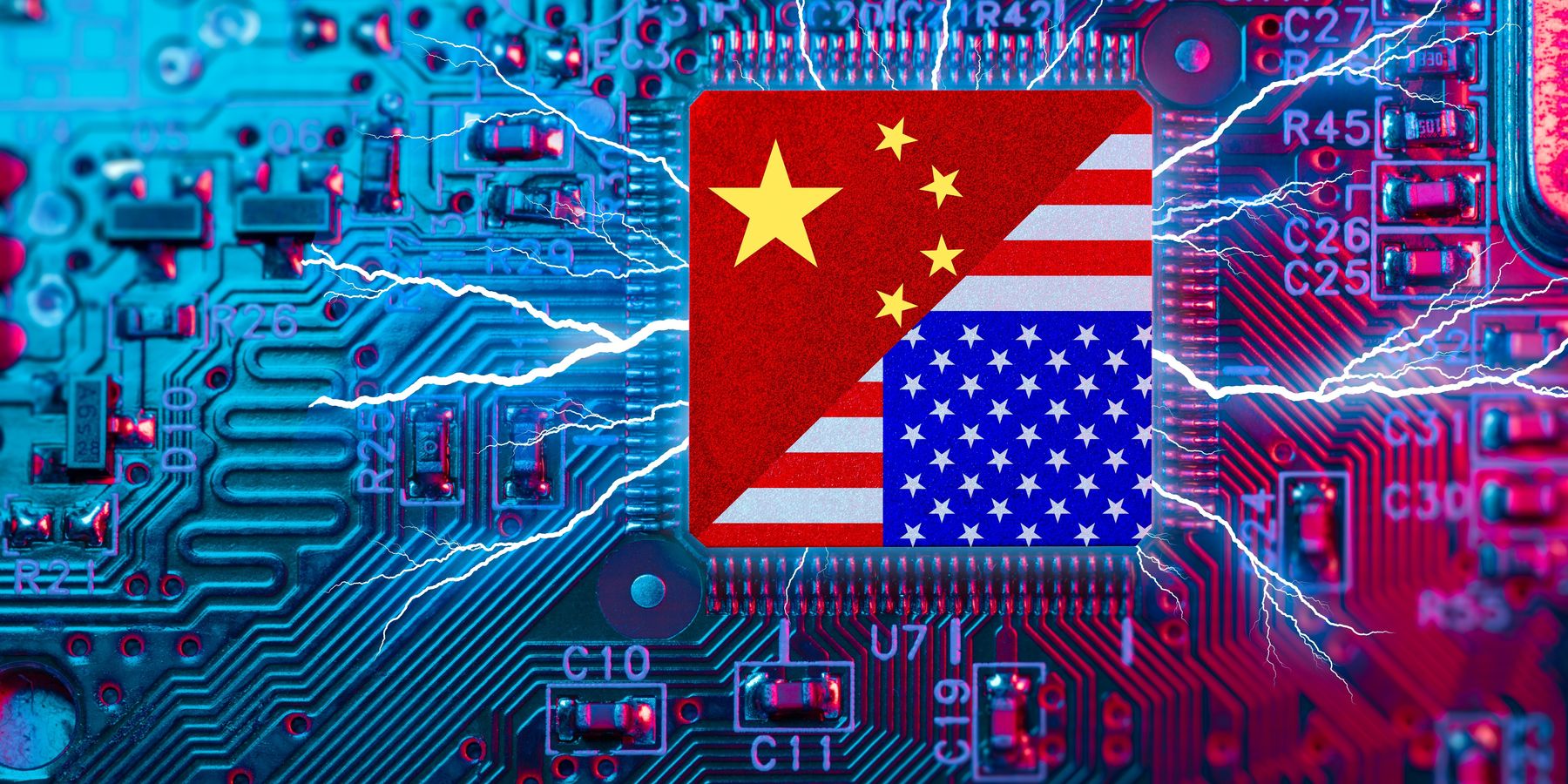On its way out the door, the Biden administration has announced a fresh round of restrictions on the sales of most advanced chips that could be used for AI.
The restrictions would reportedly cover sales of semiconductors not just to China, but also to other countries that U.S. authorities suspect might transship them — which essentially means almost the entire world.
Beyond this, the measures will also reportedly divide countries into three categories: an inner circle of allies that would retain unrestricted access to advanced U.S. chips provided they signed on to protocols governing their use of chips and AI; a secondary tier of countries that would face caps on their access to U.S. chips; and an outer tier of U.S. adversaries (most importantly China but also Russia, Iran, and a handful of others) that would face the most severe restrictions on shipments.
The decision has led to howls of protest from single companies, including NVIDIA, widely considered the key manufacturer of the most advanced chips, which said a “last-minute rule restricting exports to most of the world would be a major shift in policy that would not reduce the risk of misuse but would threaten economic growth and U.S. leadership.”
Industry organizations had an even tougher response. The Information Technology and Innovation Foundation (ITIF) was scathing in its criticism, calling the the rules “over-designed, yet under-informed” and suggesting they would have “potentially catastrophic consequences for U.S. digital industry leadership.”
Beyond arguing that rules would place onerous burdens on companies, the foundation also insisted the rules would cost the industry revenues from their loss of global markets and prove extraordinarily difficult for Washington to enforce. Conversely, restricting shipments to any markets where U.S. manufacturers are constrained from offering U.S. supply would certainly lead to an opening for China, according to the foundation.
ITIF also argued that the measure simply misunderstood the technological issues because a larger number of less advanced processors could produce similar outcomes as a small number of more advanced ones, essentially defeating the ostensible purpose of the sanctions. And there is a possibility that access to less advanced hardware might just lead to more innovative higher-efficiency solutions, a phenomenon supposedly behind the surprising performance of Deepseek, a recent Chinese AI challenger to established U.S. giants.
In time, such advances could also emerge from tech industries across the Global South — especially parts of Southeast Asia and the Middle East.
The actions of the administration and the reaction of industry appear to conform to the model laid out in my recent piece in RS as Industry Openers (those, primarily in the private sector, that want to expand trading opportunities around the world) face off against Derailers in government (those who wish to halt or roll back key Chinese technological advances). But this does not even begin to do justice to the complexity of the situation.
The ITIF response also noted that the structure of the export controls could also lead to diplomatic problems for Washington. And that is probably an understatement. The first-tier of countries include most of the U.S.’s allies in Western Europe, Canada, Australia, Japan, South Korea, and Taiwan. There are still strange (and tone-deaf) exceptions like Portugal, which is not only a NATO and EU member, but one whose former prime minister, Antonio Costa, is now President of the European Council. The exception may reflect concerns about the fact that a Chinese entity (China Three Gorges) owns roughly a fifth of the major Portuguese electricity company, but it is nevertheless at odds with the EU’s own self-image as a deeply-integrated single market with unified governance of trade.
And that’s just the beginning. The tech offensive will be resented the most across the Global South. For one thing, the limitation of the highest tier of “chip-worthiness” to historic U.S. security allies, all of which are already relatively advanced economies, will likely be seen as an effort to restrict development opportunities for middle powers, and could be interpreted as having racial overtones.
Singapore, a high-income country with further technological ambitions is presumably left out because it is seen as either too susceptible to Chinese influence or too sympathetic to that country’s economic ambitions.
Saudi Arabia is also in the second tier, following on already articulated concerns that it might transfer advanced semiconductors to China. Meanwhile, that country is not just engaged in a breakneck drive to modernize its economy under Crown Prince Mohammed bin Salman, it is also probably Washington’s key Arab ally in the region.
India is also in the second-tier despite not only its membership in the Quad, but also its status as a leading supplier of key academic personnel to computer science and engineering departments in U.S. universities.
According to a 2020 study by the National Science Foundation, about 60% of all Computer and Mathematical Sciences PhDs working in the U.S. were foreign born, with China in first place and India second. So much for the Biden administration’s much-vaunted love for India!
To return to the language of the original RS piece, the effort to Derail China is now seeking to press-gang Global South countries by preemptively (and presumptively) denying them access to advanced products and technologies. This is ostensibly driven by the fear that these countries might “leak.” But this is odd in the case of India, whose relations with its giant northern neighbor are improving at the moment but still frosty, and, in any event, has fewer economic linkages with China than do most ASEAN countries.
So the proposed restrictions will likely be seen in Delhi as an American primacist effort to prevent catch-up by India, as well as China.
And diplomacy of this type may actually make it harder to “decouple” from China; that is, find other, “safer” venues for U.S. investment in order to make supply chains more geopolitically resilient.
Because what is being demanded here is that many third countries also decouple, which they will likely see as a U.S. effort to derail their own development and growth. Underneath it all is still the hubris of attempting to construct an economic and technological cordon sanitaire around the world’s second largest economy, its largest exporter of manufactures, and a model of successful catch-up growth for huge portions of the Global South, whatever their political or diplomatic views about China.
















